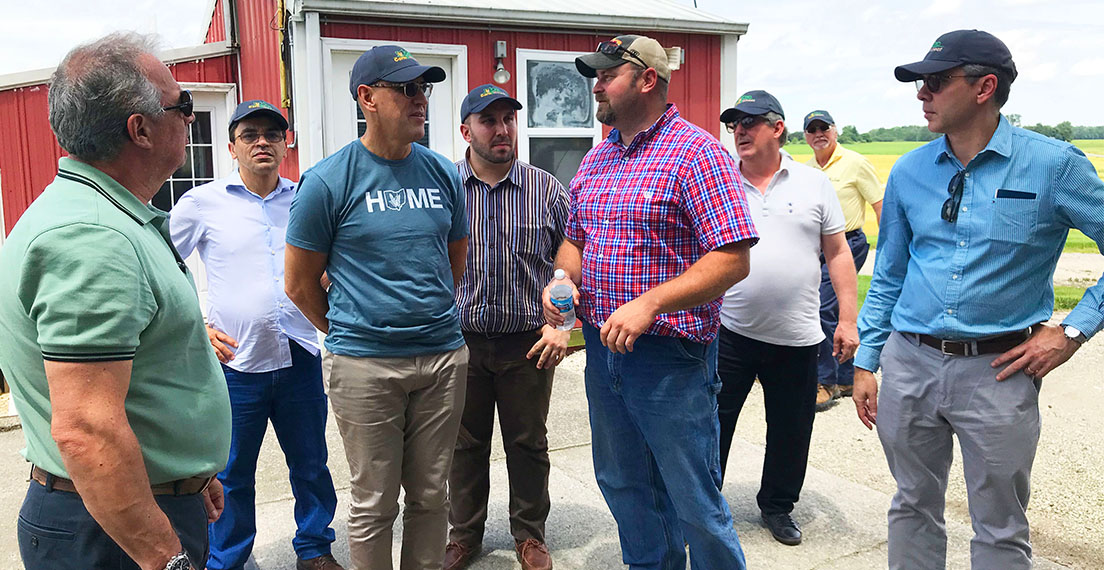Expanded Trade Delegation Effort Connects Buyers, Farmers and U.S. Wheat Organizations
By Catherine Miller, USW Program and Planning Coordinator
One of the most important types of activities U.S. Wheat Associates (USW) overseas representatives conduct is trade service. In other words, they help their customers understand how to get the most value as possible from their U.S. wheat purchases. A crucial part of trade service is giving many of those customers the chance to experience the U.S. wheat supply system first hand.
Each year, USW brings several delegations of international wheat buyers and end-product processors to the United States. These trade delegations help forge a direct connection for customers with farmers, state wheat leaders and industry organizations. In many ways, these visits represent the legacy of commitment from farmers, state wheat commissions, USDA’s Foreign Agricultural Service of USDA and USW to demonstrate the dependability of the people who produce and handle the reliable supply of U.S. wheat.
In 2019, the number of USW hosted trade delegates doubled from the previous year, with a total of 18 delegations. Almost 100 customers from around the world visited 14 states.
One delegation from Brazil, for example, was the first trade team from South America to focus exclusively on the technical staff from major mills. The participants were chosen because they have significant input on buying decisions and wheat classes used by their respective mills. They visited farmers and industry representatives in Ohio and Kansas, reflecting their interest in soft red winter (SRW) and hard red winter (HRW). The photo at the top of this page was taken as the delegation visited the Stover Farm in Shelby, Ohio. The timing of the delegation in June was ideal because in March, Brazil’s government had announced it would work toward opening a tariff rate quota to allow a significant volume of wheat to be imported from outside the South American Mercosur trade agreement.
U.S. wheat farmers benefit directly from USW helping customers around the world succeed in growing the profitability and consumer appeal of their flour and wheat foods products. That starts with activities like trade delegations demonstrating that, despite obvious differences, the people who grow, move and sell U.S. wheat share values of growth, hard work and family with the people who import, mill and process it.


